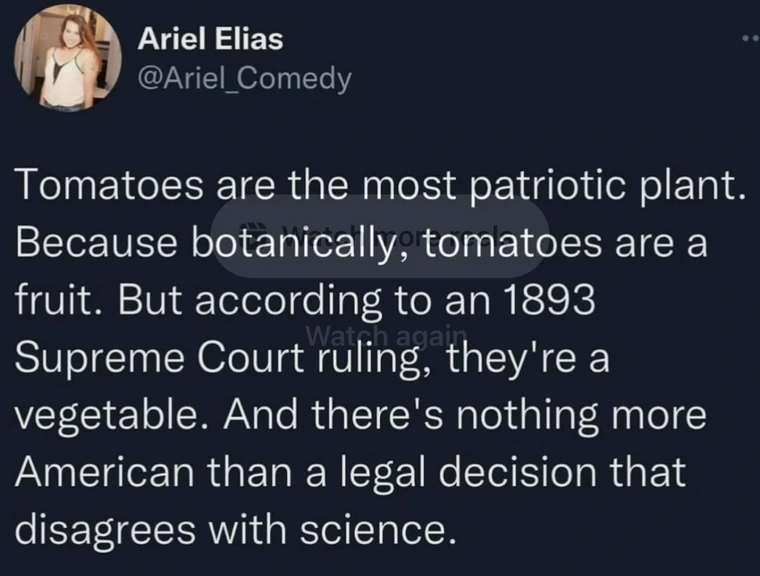this post was submitted on 21 Jan 2025
1255 points (97.2% liked)
Microblog Memes
6264 readers
2674 users here now
A place to share screenshots of Microblog posts, whether from Mastodon, tumblr, ~~Twitter~~ X, KBin, Threads or elsewhere.
Created as an evolution of White People Twitter and other tweet-capture subreddits.
Rules:
- Please put at least one word relevant to the post in the post title.
- Be nice.
- No advertising, brand promotion or guerilla marketing.
- Posters are encouraged to link to the toot or tweet etc in the description of posts.
Related communities:
founded 2 years ago
MODERATORS
you are viewing a single comment's thread
view the rest of the comments
view the rest of the comments

I'm officially calling this post misinformation. See the text of the opinion (emphasis mine). They literally say "Botanically speaking, tomatoes are the fruit of a vine". This is not about whether a tomato is a fruit or a vegetable according to specific botanical or common definitions, but about which definition to use for the purpose of the Tariff Act of 1883. It doesn't say that tomatoes are a vegetable. It doesn't say that botanically they aren't fruits. It says that for the purpose of the Tariff Act of 1883 they are vegetables, not fruits.
https://supreme.justia.com/cases/federal/us/149/304/